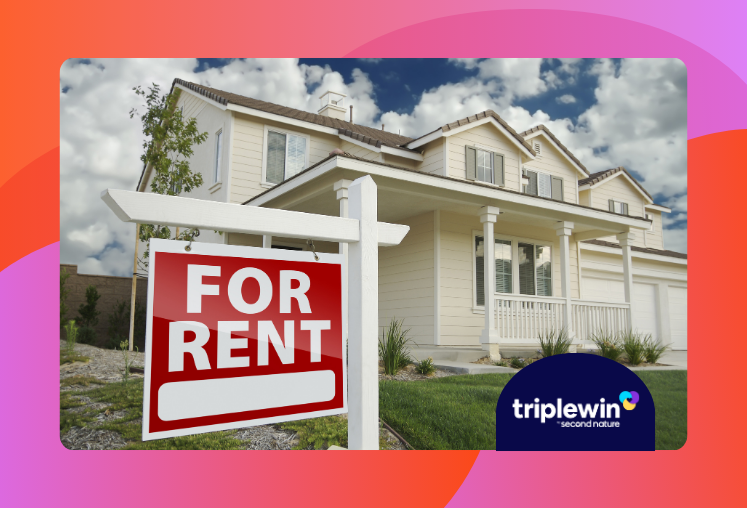What we'll cover
“PropTech companies are making the mechanics of property management easy – rent collection, maintenance, screening, the day-to-day mechanics of property management. Thirty years ago, that’s what a property manager did. Now though, when it comes to things like benefits packages, pet guarantees, and rent guarantees with security deposit alternatives – these are all things you can’t do with software. Software doesn’t solve this problem, especially for landlords trying to manage their own smaller-scale properties. The fact that we manage a lot of properties as opposed to just being a software solution, we can offer much more value.”
- Revolution Rental Management CEO Todd Ortscheid

The basics of property management, that is collecting rent, conducting maintenance, and listing and filling properties, have never been easier. The wave of investment into the industry in the form of proptech companies, as described above by Ortscheid, has stimulated this change. This is a good thing in some respects, but it also poses new challenges for PMCs. As technology makes property management’s core competencies easier, the need for an owner to hire someone to do those core competencies decreases. The service is being commoditized, which is to say that the ability to differentiate your business simply by being proficient at those core competencies is approaching zero.This creates a need for property managers to offer something beyond the core competencies, to offer something that can’t be easily replicated by technology or the accidental landlord using that technology. Thus, the focus for the property manager has changed. Good property management is no longer just taking on screening, renting, maintenance, and so on for the client. Good property management is now about maximizing the investor’s ROI via innovative value-creation programs that technology cannot duplicate.
"So the advent of resident benefits packages really grew out of that. There was just more demand to be something more. This took property managers from being just a kind of a lackey to really being the professionals, to understand the laws, to understand who protects our clients and income streams.”
- Formatic Property Management CEO Matthew Tandy
So how do you as a property manager offer something more in order to protect your clients and their income streams? You start upstream with the resident.
“The experience of the tenant is paramount in this industry. Our product is tenants. It's not all the systems. It's not all the organization. Our product to the homeowner is the tenant. Now we can go into psychological studies about making tenants happy and how they treat products better and treat the properties better, but you can have that conversation just from a logical standpoint with your homeowner. Let's talk about the resident experience in your property. And if we give them the best experience possible, they're going to feel appreciative of this address and of you as a landlord, and of us as a property manager. The better experience you can give them, the more likely they are to take better care of your property, pay you on time, stay in your property, and lower your vacancy costs. It's like a literal triple win in this case.”
- RevUp Consultant Jonathan Cook
Obviously, the resident is the source of the monthly income for the investor, so protecting that income stream and maximizing ROI from it means protecting the resident’s interests. You need them to stay. Making the property and the rental experience as good as possible for the resident incentivizes them to stay, and less turnover means less lost vacancy and turnover costs to the property’s owner. A winning experience for the resident becomes a winning experience for your clients. Property managers have gotten ahead of the curve in the evolving market by redefining the resident’s role in the business. They’re not just a necessity anymore. They’re an opportunity to install a resident experience program that creates value for investors that the investors don’t have the capacity to create themselves. This committed evolution from a service provider to an experience provider is making all the difference for America’s top PMCs.
Related: State of Resident Experience Study
Four keys to a successful resident experience platform
1. Create value
This is the single most important part of an ancillary income program. Ancillary services are not just money grabs. Treating them as that will have undesirable long-term consequences. To be sure, there is money to be made for you as the property manager, but unless you’re also creating a desirable situation for residents, you’re not helping your clients, which threatens the long-term viability of your business. Vision is important here. Creating that undeniable value for your residents is the origin point of this entire strategy. It is the cornerstone without which the whole thing crumbles. There’s a long list of pretty easily accessible programs that are proving to be welcomed by residents, including things like air filter delivery, credit-reporting tools, security deposit alternatives, resident rewards, gifting programs, home-buying assistance, and more.
2. Convenience
Residents perceive value in a number of different ways, but one of the big ones, especially in modern America, is through convenience.
“What I'm seeing from our residents, whether they're paying $3,000 a month in rent or $1,000 a month in rent, the number one thing that they look for is ease and convenience. They don't want complicated instructions. They just want simple, they want right now. They want contact free, they don't want to talk to people. That's what our residents want. So everything we do from showings to moving into the experience after they move in is all revolved around design for that expectation.”
- Skyline Properties Broker DD Lee
Delivering convenience really means making the obligations of the resident as easy as possible to fulfill. The resident is required by the lease to pay rent, they’re required by the lease to keep their air filter changed, they’re required by the lease to have renters insurance. A great resident experience doesn’t require a huge dog and pony show. Just making these basic things as easy as possible will thrill residents, especially considering how common negative perceptions of property managers can be.
3. Protect the asset
Certain convenience programs for residents can also serve to create value for the investors by protecting their asset. Services like filter delivery and comprehensive auto-enroll renters insurance help minimize maintenance and the risk of charges coming back to the client. Studies actually show that filter delivery service decreases the number of HVAC maintenance tickets. This is not only a convenient service for residents, eliminating their need to go to the store and buy a filter, but it also extends the life of the HVAC system, which is one of the most expensive things in a home to replace.
4. It all adds up
When you can create a ton of value for your residents, you can keep those residents in the properties. When you can show your clients that you can not only rent their properties, but rent them to residents who will stick around and take care of the property, while also providing services that make taking care of the property easy, you’re offering them more than technology can create. That’s how you differentiate your business in the modern era.
Topics:




